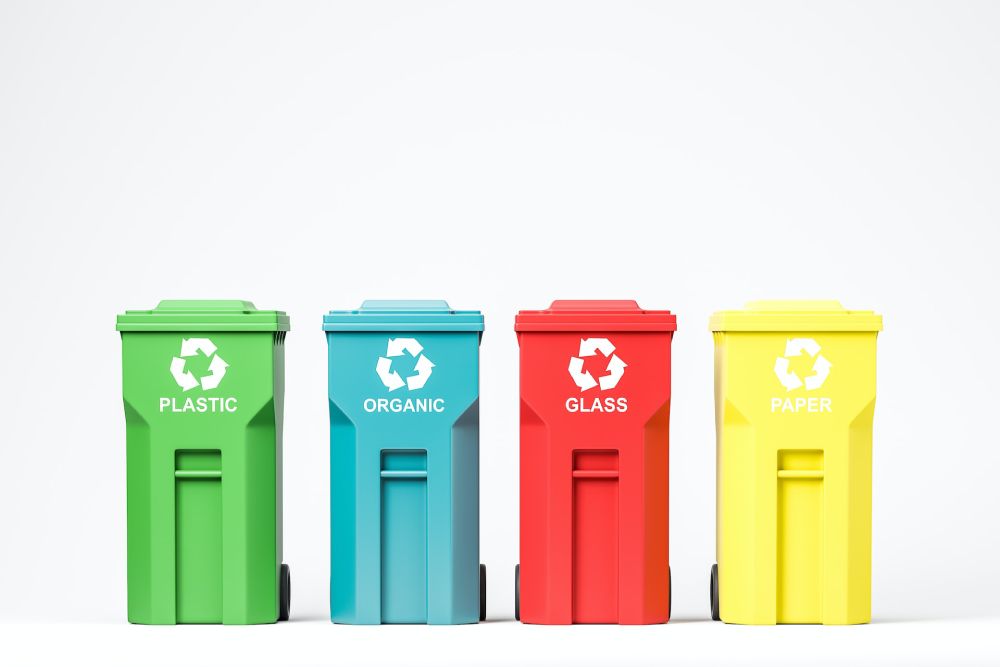Waste audits uncover opportunities for reducing and recycling materials that might otherwise end up in landfills or oceans, such as switching from disposable coffee cups to reusable mugs at an office. However, the financial benefits of these changes may take some time to become evident.
Moreover, the success of any waste audit depends on the company’s commitment to act upon its findings. That is especially true for implementing recycling systems and educating employees on sustainability.
Streamline the Recycling Process
Streamlining your recycling processes and reducing waste materials can help reduce equipment failures, downtime, and costs. By implementing a more efficient process, you can better manage your business’s resources and improve employee productivity.
Recycled materials allow manufacturers to use less virgin raw materials while satisfying the growing demands of environmentally conscious consumers. They can lessen their influence on the environment and reduce production costs. Manufacturers can save a lot of money by cutting lead times, performing waste reduction audits, and implementing industrial recovery and recycling programs in place.
One of the best ways to reduce waste is to implement a lean manufacturing technique called value stream mapping. Managers can use this visual tool to identify which steps in the manufacturing process add or subtract from the product’s value. It helps eliminate waste by focusing on elements essential to the final product and eliminating those that don’t add value.
Another way to reduce waste is to invest in a waste management system that collects materials by their streams, such as cardboard, mixed paper products, and scrap metal. It prevents contamination and ensures that recyclable materials are receiving maximum compensation.
By integrating multiple sensors that monitor equipment and production processes, you can further enhance the efficiency of your waste disposal process. It can provide real-time information on how much waste is produced and where it’s coming from, allowing you to adjust your operations.
Invest in a Recycling System
A business that needs an efficient recycling system may throw away valuable resources. Investing in a recycling system can help businesses streamline disposal and save money. A waste audit can identify areas for improvement and help a company choose the best recycling systems for its needs.
Building demand for recycled materials will create an economic incentive to invest in recycling infrastructure and technology. But that investment can only succeed with a national commitment to sustainable development and corporate-community partnerships. It is where leading municipalities, recyclers, and manufacturers can work together to establish a circular economy for the United States that will benefit all parties involved.
Waste audits can uncover operational inefficiencies that can be remedied through new recycling processes, thus increasing productivity and lowering production costs. Businesses can receive assistance to meet regulatory requirements and reporting standards thanks to their services. A commitment to sustainability can foster a positive brand image and attract environmentally-conscious customers.
The backbone of the American recycling infrastructure is the material recovery facility (MRF). MRFs must be modernized to meet the increasing demand for recyclables. If not, recycling goals will remain lofty and unachievable.
Implement a Recycling Program
Getting the administration on board is essential to implementing a recycling program. To make the case for your program, present a proposal that connects recycling to state teaching standards and showcases potential economic benefits (like money saved on trash service). Once administrative approval is secured, the rest of the process is more straightforward.
Conducting a waste audit is a vital part of starting a recycling program. It helps you identify the kind and quantity of materials that are being generated by a business. It also gives you a clear picture of what can and cannot be recycled. During the data collection phase, an auditor will visually inspect the waste bins and interview employees. They will also use tools like weighing scales and waste characterization sheets to collect accurate information.
After completing the waste audit, you can start implementing your recycling program. Place recycling containers in convenient areas to encourage employees to participate. Choose large enough bins to accommodate your three main streams – paper, plastic, and organic waste. Opt for bins that can grow with your program to avoid replacing them as the volumes change.
Educating employees on recycling is an ongoing process requiring much attention. Send emails to your employees at the beginning of the program and continuously promote recycling on social media. In addition, post visual aids in the facility to clarify what goes where.
Educate Employees on Recycling
Recycling isn’t just good for the environment; it saves natural resources and reduces carbon emissions. It’s also a great way to cut costs. Businesses can save thousands of dollars without increasing revenue by conducting waste audits and implementing a recycling program.
A waste audit, or “dumpster dive” as it is sometimes called, involves physically sorting and cataloging the contents of a company’s entire waste stream. By analyzing the data gathered, retailers can uncover inefficiencies and opportunities for improving sustainability practices.
These include finding ways to lower trash and recycle hauling costs, reducing waste diversion reporting requirements for landfills, or even gaining access to value-added materials such as metal scraps that can be recycled into new products.
Once the data is analyzed, companies should communicate the findings to employees. It can be done through various methods, such as hosting Green Team meetings, displaying posters in common areas with clear recycling dos and don’ts, or creating a Slack channel for employees to discuss questions and best practices. Incentives are another effective tool for encouraging employees to participate in the recycling program. These can be as simple as recognizing recycling champions within the company every quarter.
A well-implemented recycling program is a great way to make your workplace more sustainable, but it can only be successful if everyone in the company participates. Educating employees on the benefits of recycling and making it easy to do so can help ensure that a business’s recycling goals are met and exceeded.



